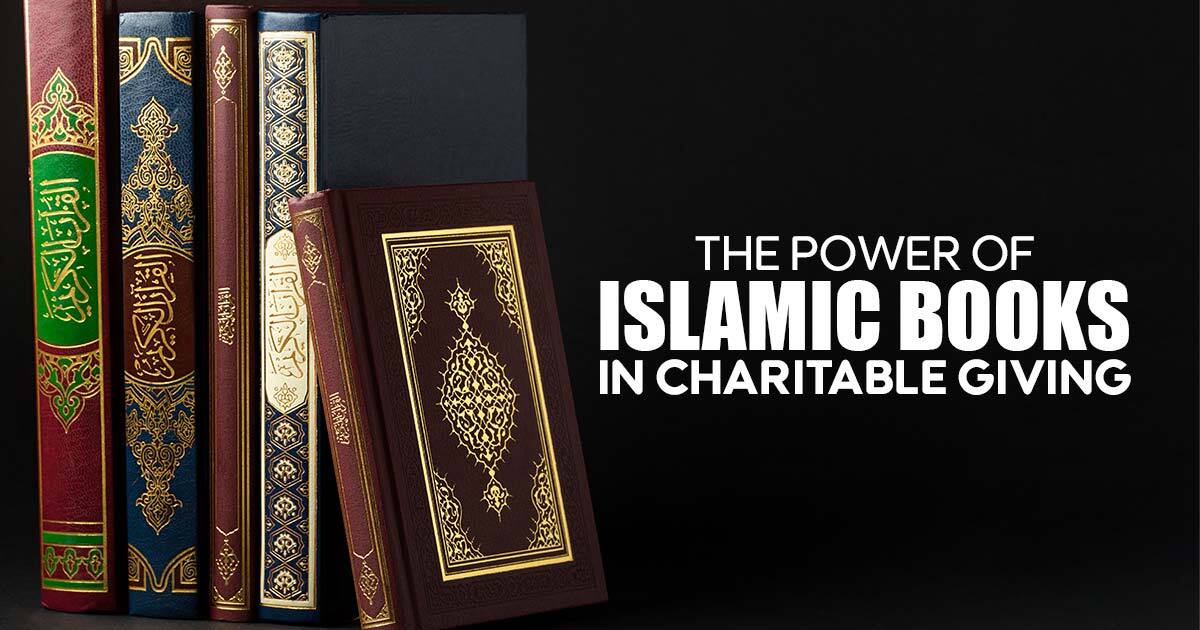Charity, a core tenet of Islam, plays a vital role in Muslim life. Muslims are encouraged to give generously, both through obligatory alms (Zakat) and voluntary charity (Sadaqah). Islamic books serve as a powerful tool in fostering a spirit of charitable giving, offering guidance, inspiration, and motivation for Muslims to fulfill their philanthropic obligations.
This blog explores the profound impact of Islamic books on charitable giving within the Muslim community. We’ll delve into the key concepts, inspirational stories, and practical advice found in Islamic literature that encourage acts of generosity.
The Importance of Charity in Islam:
Islam emphasizes the importance of helping those in need, fostering compassion, and building a just society. Here are some key aspects that highlight the significance of charity:
- Quranic Verses: Numerous verses in the Quran directly address charity, urging Muslims to give generously. For instance, Surah Al-Baqarah (2:177) states, “Righteousness is not in turning your faces toward the East or the West; but righteousness is in believing in Allah, the Last Day, the angels, the Book, and the prophets, and in giving wealth, out of love for Him, to relatives, orphans, the needy, the traveler, beggars, and those in debt, for ransom [or emancipation of slaves], and for the cause of Allah. And [righteous are] those who establish prayer and give zakah…” (Sahih International translation).
- Hadiths of the Prophet (PBUH): The Prophet Muhammad (PBUH) set a powerful example of generosity, urging his followers to give freely. He is reported to have said, “The best form of wealth is a righteous person who gives charity” (Sahih al-Bukhari). These sayings of the Prophet serve as guidance and inspiration for Muslims in their charitable practices.
- Zakat and Sadaqah: Islam prescribes two main forms of charity: Zakat, a mandatory annual donation based on one’s wealth, and Sadaqah, voluntary charity that can be given in any amount. Both Zakat and Sadaqah contribute significantly to social welfare and poverty alleviation.
How Islamic Books Promote Charitable Giving:
Islamic books serve as a rich resource for Muslims seeking to understand and fulfill their charitable obligations. Here’s how these resources motivate and empower individuals to give:
- Explaining the Concept of Zakat: Islamic books provide detailed explanations of Zakat calculations, ensuring Muslims fulfill this mandatory act of worship correctly.
- Encouraging Sadaqah: They highlight the virtues of voluntary charity, emphasizing the spiritual rewards and benefits associated with Sadaqah.
- Inspiring Stories of Generosity: Islamic literature features inspiring stories of prophets, companions, and historical figures known for their exemplary acts of charitable giving. These stories serve as powerful motivators for Muslims to emulate their generosity.
- Guidance on Types of Charity: These resources offer guidance on various forms of Sadaqah, including giving to the poor, supporting educational initiatives, building wells, and sponsoring orphans. This allows Muslims to choose causes that resonate with them.
- Practical Advice on Giving: Some books offer practical advice on budgeting for charity and identifying legitimate charitable organizations.
Examples of Islamic Books on Charitable Giving:
Here are a few examples of Islamic books that explore the theme of charitable giving:
Riyad us-Saliheen by Imam Nawawi: This collection of hadiths includes many sayings of the Prophet (PBUH) on charity, offering practical guidance and emphasizing the rewards of giving.
The Meaning of the Holy Quran by Abdullah Yusuf Ali: This renowned translation of the Quran provides insightful commentary on verses related to charity, helping readers understand the importance and purpose of giving.
Forty Hadith Qudsi by Imam An-Nawawi: This collection of sayings attributed to Allah (SWT) includes several hadiths that highlight the rewards of charity and the importance of helping those in need.
Helping Hands: A Guide to Islamic Charitable Giving by M.A. Malik: This contemporary book offers practical advice on identifying worthy causes and managing charitable giving effectively.
How to Use Islamic Books to Enhance Your Charitable Giving:
By incorporating Islamic books into your spiritual practice, you can strengthen your commitment to charitable giving. Here are some tips:
- Regular Study: Dedicate time to regularly reading Islamic texts that discuss charity.
- Reflection and Action: Reflect on the stories and teachings you encounter, then translate that knowledge into action by donating to causes that align with your values.
- Discussion with Scholars: Seek guidance from knowledgeable scholars who can offer insights on specific aspects of charitable giving.
- Book Clubs: Consider forming a book club with fellow Muslims to discuss Islamic texts related to charity and share experiences in giving.
Conclusion:
Islamic books offer a treasure trove of knowledge and inspiration for Muslims seeking to cultivate a spirit of generosity. From explaining the pillars of Zakat to sharing inspiring stories of charitable figures, these resources serve as a powerful guide for fulfilling one’s philanthropic obligations. By incorporating Islamic literature into your spiritual practice, you can deepen your understanding of the importance of charity, gain practical guidance for effective giving, and ultimately contribute to building a more just and compassionate world.
FAQs About The Power of Islamic Books in Charitable Giving:
Are there any specific Islamic books I should focus on for charitable giving?
Start with collections of hadiths (Riyad us-Saliheen) or Quran commentaries on charity. Modern books like “Helping Hands” offer practical advice.
How can I ensure my charitable donations go to legitimate causes?
Researching potential charities is crucial. Look for organizations with a clear mission, transparent financial statements, and a track record of effective work. There are also online resources that evaluate charities based on various criteria.
What if I can’t afford to give large sums of money?
Charity is not measured solely by the amount given. Even small donations can have a significant impact, especially when combined with others. Remember, the Prophet (PBUH) encouraged giving “even if it is only half a date” (Sahih al-Bukhari).
Can volunteering my time be considered a form of charity?
Absolutely! Donating your time and skills is a valuable form of Sadaqah. Volunteering your expertise, helping at a local soup kitchen, or simply offering companionship to those in need are all ways to contribute positively to your community.
How can I encourage my family and friends to be more charitable?
Lead by example! Share inspiring stories from Islamic texts and discuss the importance of giving within your family. Encourage discussions on causes you care about and explore volunteering opportunities together. Your own commitment to charity can be a powerful motivator for others.



